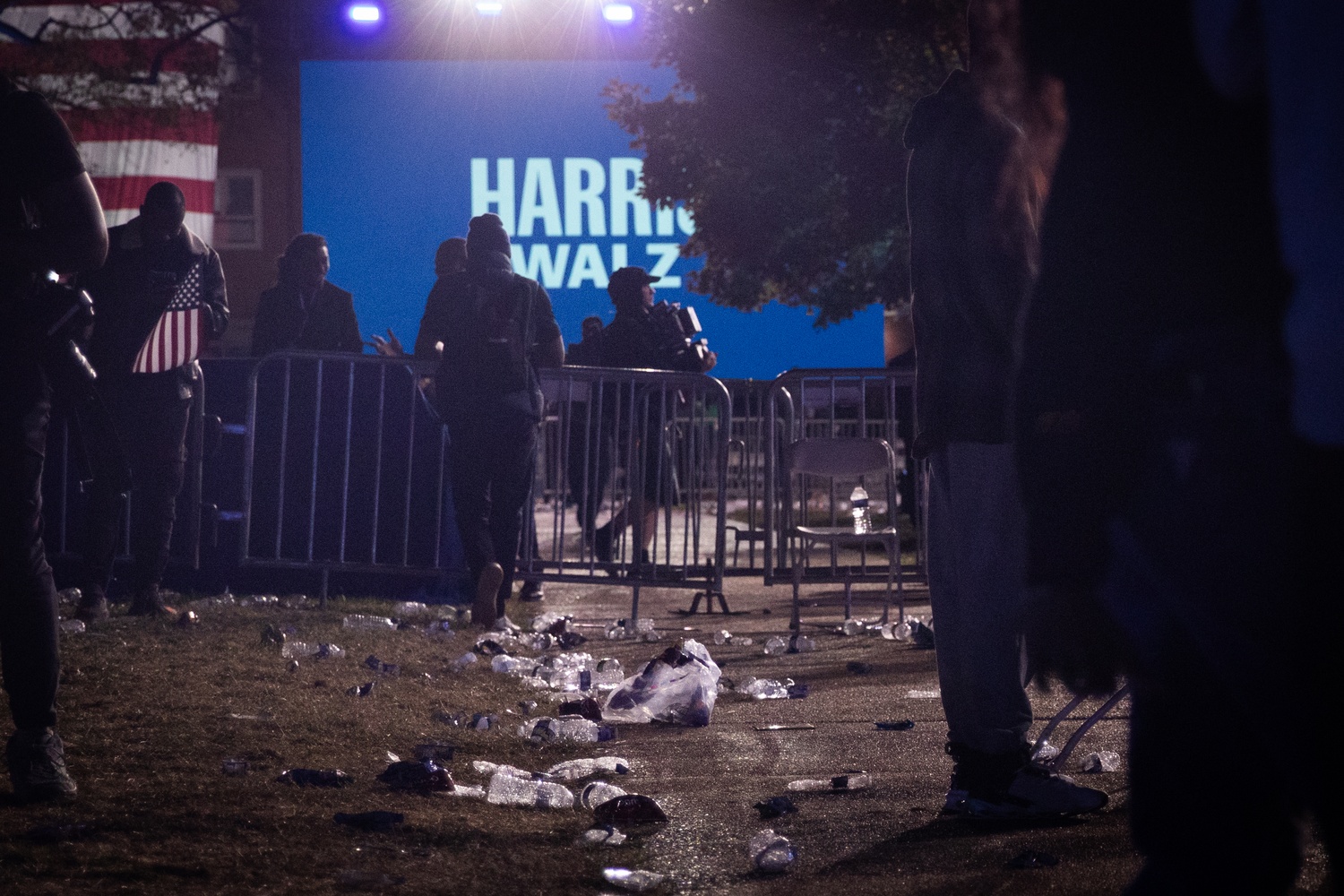
News
Harvard Grad Union Agrees To Bargain Without Ground Rules

News
Harvard Chabad Petitions to Change City Zoning Laws

News
Kestenbaum Files Opposition to Harvard’s Request for Documents

News
Harvard Agrees to a 1-Year $6 Million PILOT Agreement With the City of Cambridge

News
HUA Election Will Feature No Referenda or Survey Questions
Feeling Down About the Election? Here’s What To Do Now.
The day after President-elect Donald Trump’s second election victory, I felt defeated.
For Black Americans like myself, Vice President Kamala Harris’ candidacy represented the possibility that one of us could again hold our country’s highest office. But her loss revealed the reality that the United States has far more to do to enshrine equal rights for all.
Amidst the initial melancholy of that day, one question rested in my mind: Why did I only pay close attention to issues that I care about during presidential election years?
The widespread idea that change can only come through the presidential election can make college students, and all Americans, feel helpless. But there’s a way to turn that helplessness into hope — with a daily dose of political action.
I don’t blame anyone for only thinking about hot-topic issues during election season. The total political advertising spending in this year’s election was over $10 billion. Candidates and pundits parade policies and rhetoric demanding our vote nonstop each election. This intensity perpetuates an idea that the presidency is America’s sole chance for change.
But it’s not. There are ample opportunities for all of us to engage politically every single day.
Many of my Harvard peers were actively involved on the campaign trail, regularly canvassing and phone banking voters in swing states throughout the fall. On campus, groups such as Harvard Votes Challenge registered peers to vote and helped them request absentee ballots. Witnessing fellow Harvard students meaningfully engage in catalyzing political change is genuinely inspiring and has a real impact.
Yet, most college students — especially at Harvard — do not have the time to go on weekly canvassing trips or run voter registration drives. So what more can Harvard students do?
Start local. One way to remain engaged is by keeping up with events in Cambridge or your hometown and voting accordingly. It’s easy to get lost in national political intrigue, but local newspapers often offer the best insight on the outcomes that will impact us most directly. For example, The Crimson reported on the five Massachusetts ballot questions — three of which passed and will directly change the lives of Cambridge residents like us.
This past election, 41 states had ballot measures on issues like abortion, school choice vouchers, ranked choice voting, and minimum wage increases. In my home state of Florida, a ballot measure that would’ve enshrined abortion rights into law was just 2.8 percentage points shy of passing.
Engaging with issues at the local level can be life altering for you and your neighbors.
Part of staying informed is being willing to change your mind. We should make an active effort to communicate with those who disagree with us. With over 80 percent of Harvard faculty identifying as liberal according to a 2022 Crimson survey, it is safe to say most of us reside within a left-leaning echo chamber. Now, more than ever, it is crucial that we have conversations with those who disagree with us, in and outside our political home.
Our care for America must not merely be confined to a single month each election season. We can make our voices heard far more often — ideally, every day for the next four years.
Dalevyon L.J. Knight ’27, a Crimson Editorial editor, is a Chemistry concentrator in Adams House.
Want to keep up with breaking news? Subscribe to our email newsletter.

